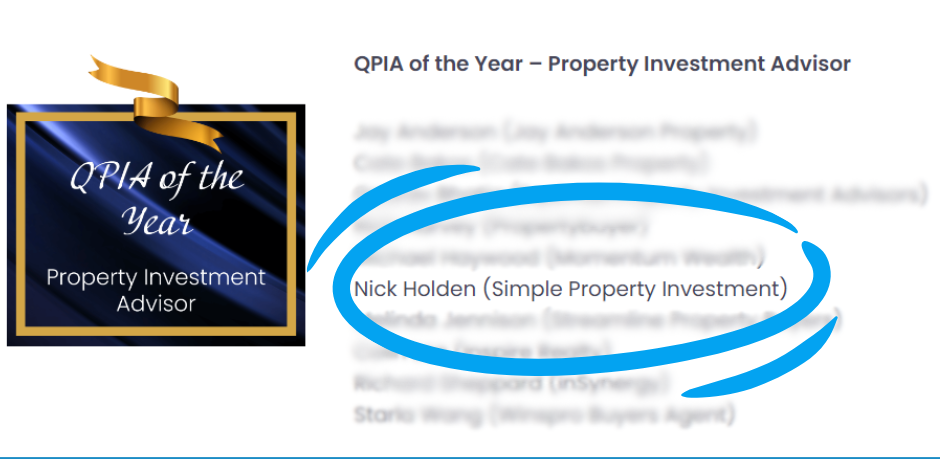It’s a common question: Should I keep my home as an investment? You want (or need) to move and you’re wondering whether to hold onto your current property and turn it into an investment. If you want the best financial result, my experience has found more often than not, selling the family home is the way to go.
It is not a simple yes or no answer: you may wish to upgrade your home, move suburbs to be closer to schools or family, or be relocated for work. Whatever the reason may be, there are a few important things to consider which we’ll cover in this article.
Two common reasons you may want to keep your home as an investment are:
- Option to move back
- Best financial result
Let’s look at these in more detail, shall we?
Goal 1: Option to move back
You may like the option to move back in when:
- Children move out
- Retirement
- Interstate working role finishes
If moving back is your primary objective, keeping your home as an investment may be a good option. However, from my experience, this strategy usually doesn’t give the best financial result.
So let’s explore what will give you the best financial outcome.
Goal 2: Best financial result
There are 3 factors to consider when deciding whether keeping your home as an investment will give you the best financial result:
- Capital Gains Tax (CGT)
- Tax Deductible Debt versus Non-Tax Deductible Debt
- Is it going to be a good investment?
Consideration 1: Capital Gains Tax
If you sell your home, which is known as your official main residence (ATO website), for more than what you purchased it for, it’s most likely you won’t need to pay tax on capital gained.
As your main residence, you can even:
- Move out
- Rent your property for up to 6 years
- Not pay capital gains tax
This is known as the ‘6-year rule‘ – a legitimate way to avoid you paying a lot of money to the tax man. Check out how a property can be treated as your main residence after you move out (ATO website).
Consideration 2: Tax Deductible Debt versus Non-Tax Deductible Debt
If you plan to change your ‘main residence’ (so your new home is your main residence, and your old home becomes your investment property):
- Interest charged on your home mortgage is not tax deductible
- Interest charged on your investment property mortgage is tax deductible
If you have paid off most of your home mortgage:
The remaining loan amount will become investment debt.
If you refinance against the equity in this property to buy your next ‘main residence’:
You are not allowed to claim the interest on that portion as a tax deduction – even though it is secured against what is now an investment property.
Why is this important?
- You’ll need to borrow the maximum amount against your new ‘main residence’.
- This interest is not tax deductible.
Consideration 3: Is it going to be a good investment for others?
It’s a common mistake. You’ve loved living in your home. You have lots of great memories. So it must be a great home for anyone else. Right?
Tip: Keep emotion away from fact. Put yourself in your investor’s shoes. Look at the fundamentals of a successful property investment.
Essentially, your property needs to be attractive to both tenants and potential future buyers. They will look at:
- What infrastructure and facilities are nearby
- Whether the area suits their stage of life and lifestyle
- The growth of the area
- How much land and property is around
Infrastructure, facilities, demographics
- How close is the property to schools and shops?
- What employment opportunities are nearby?
- Are public transport and highways easy to get to?
- How well does your property suit the demographics of the area?
Population growth
For the property to increase in value there needs to be population growth that is both sustainable and maintainable in that region.
Land and property scarcity
There also needs to be a degree of scarcity of both land and properties available in that area.
When lots of people (high demand) are after only a few homes (limited supply), basic economics tells us the value of your property is more likely to go up.
Still not sure if your home is a good investment? Look to the baby boomers: they give valuable clues about the best places to invest in Australia.
So to decide if keeping your home as an investment will give you the best financial result, it pays to consider:
- Capital Gains Tax (CGT): do you need to pay it?
- Tax Deductible Debt versus Non-Tax Deductible Debt: what can you deduct, and if you can’t deduct, is it still worth it?
- Investment for others: Are the fundamentals sound to make this a good investment or rental for someone else?
Let’s look at a case study to see how these considerations can help a fictional family, Bob and Mary, answer the question: ‘Should I keep my family home as an investment?‘. And what will give them the best financial result?
Case study: Bob and Mary
Bob and Mary bought their first home 10 years ago for $300,000. They’ve decided it’s time for an upgrade. They want to keep this property as an investment because it has been a great place for them and it seems an easy strategy.
The property is now worth $600,000. They only owe $100,000.
Bob and Mary agree on a new property to become their home and purchase it for $800,000.
They borrow 80% secured against the new property ($800,000 x 0.8 = $640,000) and secure 20% ($800,000 x 0.2 = $160,000) against the now investment property to avoid mortgage insurance.
So even though there is now $100,000 (original debt) + $160,000 (debt for new home) = $260,000 debt secured against the now investment property, only the original debt of $100,000 is tax deductible.
They now have debt of $800,000 – interest is not tax deductible.
So:
Property value (old main residence): $600,000
Owing: $100,000 (tax deductible)
New home (new main residence): $800,000 (not tax deductible)
Borrow: $640,000
Security against investment property (old home): $160,000 (not tax deductible)
If they decide to sell the first home
If Bob and Mary decided to sell their first home for $600,000 they will now have $500,000 (which most likely would be exempt of capital gains tax) to put towards their new purchase.
This means they would only have a non-tax deductible mortgage of $300,00 ($800,000 purchase price – $500,000 cash) leaving $500,000 of equity they could leverage into appropriate investments.
Sell first home: $600,000 (only $100,000 owing)
Funds available, no CGT: $500,000
Mortgage for new home: $300,000 ($800,000 – $500,000) – non-tax deductible
Equity available to leverage for investment: $500,000
Their options – and the best financial outcome
Option 1: Keep old home. $100,000 is tax deductible if Bob and Mary keep their old home as an investment property.
Option 2: Sell old home: $500,000 of CGT-exempt funds if they sell their old home, they get a new home, and equity to invest in a specifically chosen investment property.
Option 2 is a financially better outcome.
*Disclaimer – This is a simplistic overview of figures for the sake of illustration which has not taken selling or buying costs into consideration.
Summary
Common reasons you may want to keep your home as an investment are to move back in down the track, or to get the best financial outcome. Moving back in doesn’t usually make the most financial sense.
To work out whether keeping your home will get you the best financial result, consider CGT, tax-deductible debt, and stick to the fundamentals to work out whether your home really is a good investment.
More often than not, if you’re after the best financial result: sell your family home.
Are you thinking about keeping your family home as an investment? Request a callback for a friendly, 100% obligation free chat to check what option best suits your situation and investment goals.













3 Comments